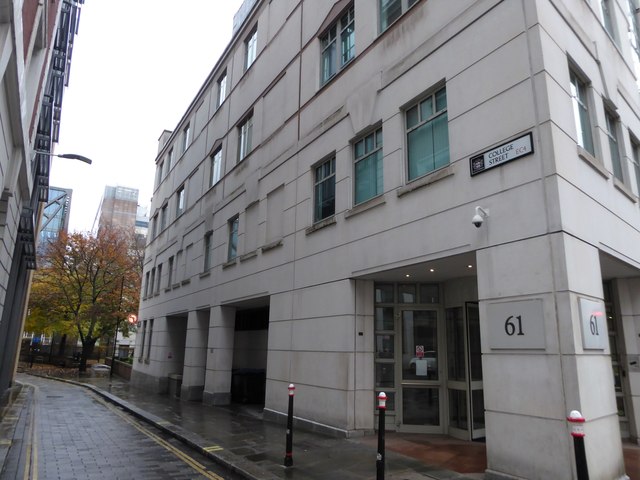This is the science behind An ideal Embassy Jobs
페이지 정보
작성자 Martin 댓글 0건 조회 118회 작성일 24-04-25 00:00본문
 Introduction:
Introduction:South Africa, a diverse and vibrant country located at the southernmost tip of the African continent, is home to a unique political landscape. Many people wonder how many capital cities South Africa has and what makes each one significant. In this article, we will explore the capital cities of South Africa and shed light on their historical and cultural importance.
Johannesburg – The Economic Hub:
Although not the official capital, Johannesburg is often considered the economic capital of South Africa. It is the largest city in the country and serves as the financial center, housing the Johannesburg Stock Exchange. Johannesburg's rich history dates back to the discovery of gold in the late 19th century, which led to rapid growth and development. Today, it is a bustling metropolis known for its vibrant culture, diverse population, and thriving business sector.
 Pretoria – The Administrative Capital:
Pretoria – The Administrative Capital:As the official administrative capital of South Africa, Pretoria plays a crucial role in the country's governance. The city is known for its beautiful jacaranda-lined streets and is home to the Union Buildings, where the President's office is located. Pretoria is also renowned for its educational institutions, including the University of Pretoria, making it a hub for academic pursuits.
Cape Town – The Legislative Capital:
Cape Town, located on the southwestern coast, is the legislative capital of South Africa. It houses the National Parliament, where the country's laws are debated and passed. Cape Town is famous for its stunning natural beauty, including Table Mountain and the Cape of Good Hope. If you are you looking for more on facts about african culture check out the web page. Its rich history and diverse culture make it a popular tourist destination, attracting visitors from around the world.
Bloemfontein – The Judicial Capital:
Bloemfontein, situated in the Free State province, holds the distinction of being the judicial capital of South Africa. The Supreme Court of Appeal, the highest court in non-constitutional matters, is located here. Bloemfontein is known for its well-preserved Victorian architecture and is often referred to as the "City of Roses" due to its abundance of rose gardens.
Mmabatho – The Former Capital:
Mmabatho, located in the North West province, was the capital of the former Bantustan of Bophuthatswana during apartheid. After South Africa's transition to democracy in 1994, Mmabatho was incorporated into the newly formed North West province, and its capital status was transferred to Mahikeng. Although no longer a capital city, Mmabatho serves as a reminder of South Africa's complex history.
Conclusion:
South Africa, a country known for its diversity and rich heritage, boasts multiple capital cities, each with its own unique significance. Johannesburg, Pretoria, Cape Town, and Bloemfontein fulfill different roles in the political landscape, while Mmabatho holds historical importance. Understanding the functions and history of these capital cities provides valuable insights into the governance and cultural fabric of South Africa. Whether you are exploring the vibrant streets of Johannesburg or admiring the legislative debates in Cape Town, each capital city offers a distinct experience that contributes to the tapestry of this remarkable nation.

- 이전글Can You actually Find Maty Do Akupresury Ranking (on the net)? 24.04.25
- 다음글The Part-time Trap 24.04.24
댓글목록
등록된 댓글이 없습니다.

 치과소개
치과소개 자연치아살리기
자연치아살리기 수면마취
수면마취 임플란트
임플란트 치아교정
치아교정 심미치료
심미치료 일반치료
일반치료 사랑니발치
사랑니발치
 진료철학
진료철학 의료진 소개
의료진 소개 둘러보기
둘러보기 첨단장비
첨단장비 소독멸균
소독멸균 리오기공소
리오기공소 무통마취
무통마취 오시는길
오시는길 의료진소개
의료진소개 오시는길
오시는길
 리오가 생각하는 치아
리오가 생각하는 치아 재근관치료
재근관치료 엠도게인
엠도게인 리오가 생각하는 치아
리오가 생각하는 치아 엠도게인
엠도게인
 수면마취란?
수면마취란? 수면 임플란트
수면 임플란트 수면 사랑니발치
수면 사랑니발치 주의사항
주의사항 수면마취란?
수면마취란? 수면임플란트
수면임플란트
 리오가생각하는임플란트
리오가생각하는임플란트 UV임플란트
UV임플란트 전체임플란트
전체임플란트 즉시임플란트
즉시임플란트 비절개 임플란트
비절개 임플란트 네비게이션 임플란트
네비게이션 임플란트 임플란트 틀니
임플란트 틀니 임플란트 재수술
임플란트 재수술 전신질환 임플란트
전신질환 임플란트 임플란트 시술후 관리
임플란트 시술후 관리 리오가생각하는임플란트
리오가생각하는임플란트 UV임플란트
UV임플란트









 심미치료란?
심미치료란? 라미네이트
라미네이트 올세라믹
올세라믹 잇몸성형
잇몸성형 치아미백
치아미백 잇몸미백
잇몸미백 심미치료란?
심미치료란? 라미네이트
라미네이트
 충치치료
충치치료 신경치료
신경치료 치주치료
치주치료 스케일링
스케일링 시린이
시린이 예방치료
예방치료 틀니
틀니 턱관절 치료
턱관절 치료 수면 사랑니발치
수면 사랑니발치 충치치료
충치치료 신경치료
신경치료
 리오가생각하는사랑니발치
리오가생각하는사랑니발치 사랑니발치
사랑니발치 수면사랑니발치
수면사랑니발치 주의사항
주의사항 리오가 생각하는 사랑니발치
리오가 생각하는 사랑니발치 수면사랑니발치
수면사랑니발치